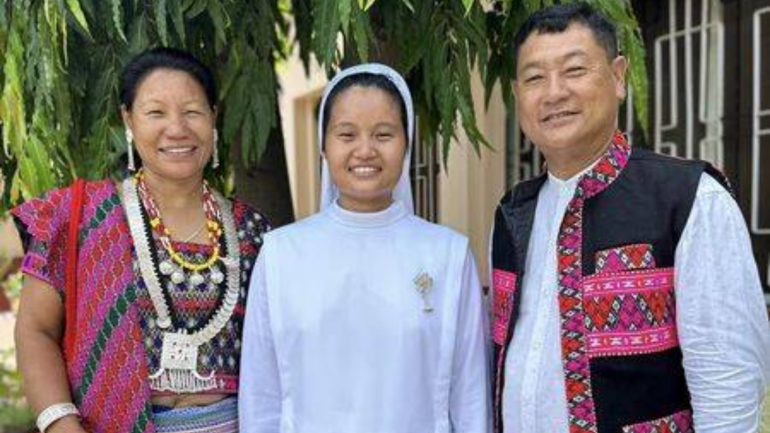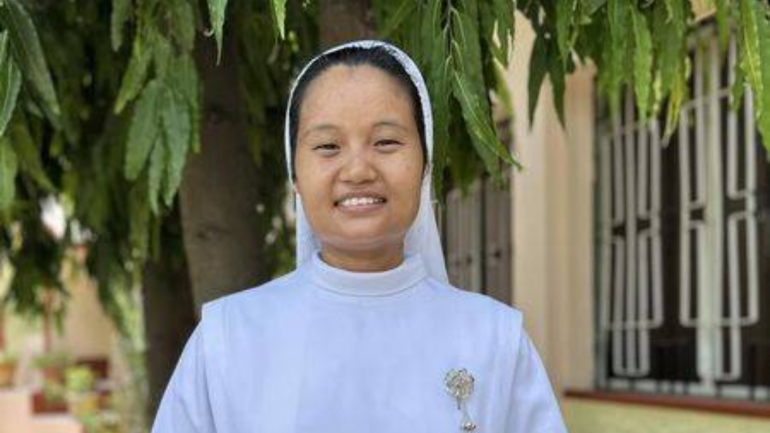Catholic diocese marks profession of nun from Mishmi indigenous community in northeastern India
A diocese in northeastern India celebrated a Thanksgiving Mass for the first religious profession of a Catholic nun from the Mishmi indigenous community of Arunachal Pradesh state on June 25.
Salesian Bishop Palliparambil of the Diocese of Miao officiated the Mass for Sr. Scholastica Toh, a member of the Franciscan Missionary Sisters of the Sacred Heart (FMSH).
The event occurred at the parish of Tezu in Tezu Lohit district, Arunachal Pradesh.
The occasion also coincided with the celebration of the Laity Sunday observance.
Catholics of Tezu parish organized a grand Thanksgiving Holy Mass at the Parish Church for Sister Scholastica, the first nun from the Mishmi community, said Father Felix Anthony, a priest of the Miao diocese, in a social media post.
"We thank God for the gift of Vocation to Sister Scholastica Toh," Anthony said.
The Mishmi people of Arunachal Pradesh are an ethnic group located at the northeastern tip of central Arunachal Pradesh. They are also found in Tibet.

On June 8, Sister Scholastica made her first Profession in Vijayawada, a city in the southeast Indian state of Andhra Pradesh.
The French Duchess Laura Leroux de Beauffremont and Reverend Gregory Fioravanti, OFM, whose cause for canonization is currently being pursued with the Holy See, founded the Franciscan Missionaries of the Sacred Heart in 1861.
The congregation has members in India, the Philippines, and 20 additional nations.
The compassion and redeeming love of Jesus for all people inspire the nuns as they practice the gospel in the manner of St. Francis of Assisi. They participate in communal life through praying, doing penance, and engaging in apostolic work. -Santosh Digal
Radio Veritas Asia (RVA), a media platform of the Catholic Church, aims to share Christ. RVA started in 1969 as a continental Catholic radio station to serve Asian countries in their respective local language, thus earning the tag “the Voice of Asian Christianity.” Responding to the emerging context, RVA embraced media platforms to connect with the global Asian audience via its 21 language websites and various social media platforms.














